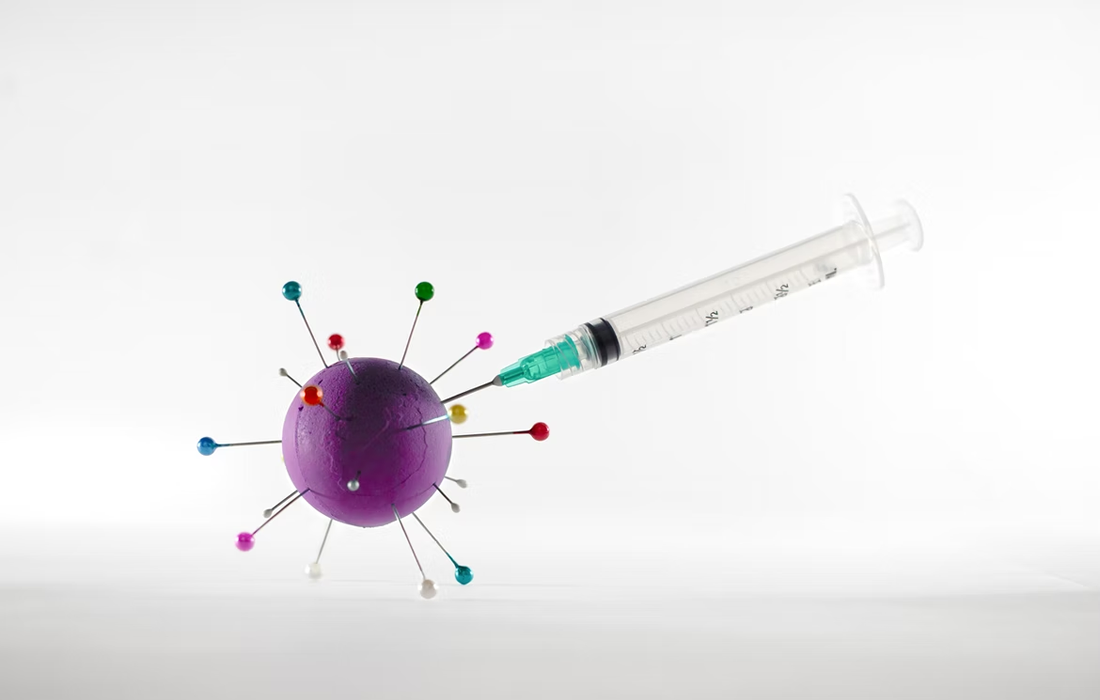COVID-19
The Effect of IBD Treatments in COVID Vaccine Response
Coronavirus-19 (COVID-19) infection is characterized by immune dysregulation, especially in the elderly or immunocompromised patients with comorbidities.
Vector-based vaccines (i.e. Ad26.COV2.S by Janssen/Johnson&Johnson) and mRNA vaccines (BNT162b2 by Pfizer/BioNTech, mRNA-1273 by Moderna/NIH), are both in wide use in the world.
The antibody responses of the vaccines in immune-compromised populations have been described, but the T-cell responses have not been well characterized.
Inflammatory bowel disease (IBD) is characterized by an aberrant host immune response to commensal gut bacteria, and is often treated with immune-modifying therapies including thiopurines, corticosteroids, monoclonal antibodies targeting tumor necrosis (TNF)-α, integrins, and interleukin inhibitors.
Patients with IBD have shown similar complication risks when compared to the general population even when they are in use of biologic therapy.
Two recently published studies, one in the journal Frontiers of Immunology and another one in the journal Inflammatory Bowel Diseases, evaluated the response to COVID vaccines in these patients.
Decreased Antibody Response but Increased T-Cell Response
In both studies, participants included had an IBD diagnosis and received vaccinations against COVID-19. Both teams’ main goal was to evaluate the T-cell response of the participants.
In the study published in the journal Frontiers of immunology, the team found that participants had an increased T-cell receptor response after vaccination than before vaccination. They also found that those participants taking adalimumab developed an even stronger response when compared to other anti-TNF biologics.
The study published in the journal Inflammatory Bowel Diseases found that patients with IBD taking anti-TNF medications had an enhanced T-cell response. They concluded that although anti-TNF therapies blunts the antibody response, the cellular immunity after vaccination is robust.
The researchers believe that the decrease in antibody responses may reduce vaccine protection from infection, but the associated robust T-cell clonal expansion may enhance vaccine-mediated protection against severe disease once the patient is infected.
Sources:
Alexander M. Xu, et al. Differences in SARS-CoV-2 Vaccine Response Dynamics Between Class-I- and Class-II-Specific T-Cell Receptors in Inflammatory Bowel Disease. 2022. Front. Immunol. https://doi.org/10.3389/fimmu.2022.880190
Dalin Li, PhD, et al. The T-Cell Response to SARS-CoV-2 Vaccination in Inflammatory Bowel Disease is Augmented with Anti-TNF Therapy, Inflammatory Bowel Diseases, Volume 28, Issue 7, July 2022, Pages 1130–1133, https://doi.org/10.1093/ibd/izac071
Image from:
Photo by Ivan Diaz on Unsplash

